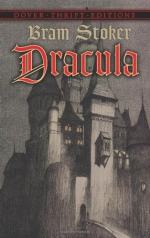|
This section contains 2,555 words (approx. 9 pages at 300 words per page) |

|
Terror in Irish Gothic Fiction
Summary: How terror is achieved in classic Irish Gothic literature such as Bram Stoker's "Dracula," Robert Maturin's "Bertram," and William Carlton's "Wildgoose Lodge." All three works start with an air of evil foreboding, create terror through obscurity, and the expectation of evil is realized.
Terror is certainly perhaps the most important aspect of any Gothic work, let alone that of the Irish fiction. However, it does appear that the more terrifying a text is, usually, the more obscure it also tends to be. Though in suggesting this, we may also have to question what actually is meant by the term `obscure', and especially what may be deemed `obscure' in each text's context. Clearly what may have frightened or terrified readers of the nineteenth-century may no longer have the same effect on modern readers. Similarly, it may also help to understand a little about the cultural and perhaps even political background which shrouds nineteenth-century Irish fiction, however we may reflect on this as we progress.
However, here we shall deal with Bram Stoker's Dracula (1897), William Carlton's Wildgoose Lodge and Charles Robert Maturin's Bertram (1816).
What we could say, before we begin to analyse each...
|
This section contains 2,555 words (approx. 9 pages at 300 words per page) |

|


